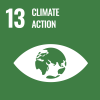Bentiu, 7 April 2022 – When floodwaters engulfed Nhialdiu village near Bentiu town in northern South Sudan last June, Angela Chagor never thought it would last for weeks, or even months.
But water levels continued to increase day by day, submerging homes and everything else.
“All my property remained behind, all of them – the sleeping mat and everything, because I was saving my children from the floods,” says Angela, who is now living with her four children at one of the newly established sites for flood-displaced persons in Bentiu.
Despite taking temporary refuge at the makeshift shelter in Bentiu – some 40 kilometres away from her home – Angela does not feel safe.
“I worry about the future of my children. What will I do with the children if this place is taken up by water?” she wondered.
In Bentiu, five flood-related displacement sites have emerged in the last few months, hosting together an average of 19,000 people.
The few dry lands in Bentiu, Unity State, are protected by dikes. Photo: IOM/Jale Richard
The entire Bentiu town, including the largest camp for internally displaced persons in Rubkona County, is surrounded by water. Inside the camp, there are more than 110,000 people who have been affected by conflict.
South Sudan has been experiencing the dire effects of climate change with the worst flooding in 60 years. More than 850,000 people have been affected and need urgent life-saving support. The worst-hit is Unity State where 220,000 have been affected, including 110,000 people who were already displaced due to conflict.
The flooding is a big blow to the youngest nation in the world, which is already facing one of the world’s worst humanitarian crises with some 8.9 million people in need of humanitarian and protection assistance this year due to conflict, disasters and climate change, compared to 8.3 million people in 2021.
In Bentiu, families are struggling to cope with the devastating impact of the floods. They have lost their livestock and crops, their entire livelihoods, leaving them not only homeless but experiencing food insecurity and increased threat of diseases.
“It is almost unimaginable,” says Amy Pope, the Deputy Director General for Reforms and Management at the International Organization for Migration (IOM) during a visit in February to the flood-affected people in Bentiu.


WASH activities include borehole repair and maintenance to ensure the provision of safe drinking water to those displaced. Photo: IOM/Jale Richard
“People have been forced to leave their communities, livestock have died, there is tremendous food insecurity, people are more threatened by things like malaria and other diseases.”
“It has a devastating impact on the people living in this community,” she adds.
IOM is a key partner in flood response efforts in South Sudan, having responded to flooding in Jonglei State and Pibor Administrative Area.
Ongoing efforts in Bentiu include the construction and reinforcement of berms and dikes, and deployment of trash pumps to ensure continued humanitarian access at the airport and along core supply roads.
In addition, Water, Sanitation and Hygiene (WASH) activities, including borehole repair and maintenance, have ensured the provision of safe drinking water to flood-affected displaced persons on the new sites.
“But for us to be able to continue the immediate needs as well as the longer-term needs,” says Ugochi Daniels, IOM’s Deputy Director General for Operations, “we continue to request more funding and thus ensure the people of Bentiu and the surrounding areas are not only safe, but that they can return to their lives, their livelihoods, and be active participants in the development of their communities and their country.”

IOM Deputy Directors General Amy Pope and Ugochi Daniels use a canoe to navigate through flood-affected Bentiu. IOM/Rosemary Ogola
In many locations, water levels remain stagnant despite the onset of the dry season. Now the Unity State Government and humanitarian agencies are racing against time to secure Bentiu ahead of the fast-approaching rainy season.
IOM is not only committed to providing life-saving responses but also designing medium and long-term flood mitigation programmes aimed at strengthening resilience to natural hazards in South Sudan.
Forty-five-year-old Nyachak Keat lives in Bentiu town which has been surrounded by flood waters.
Despite her physical disability, she joins a group of other women helping to fill soil into sandbags that are placed on the foot of the dike to protect their villages from being submerged.
“I have to contribute to the protection of my area because this situation needs the contribution of every single one of us,” she says.
“I am happy with the work done by IOM to build dikes. Without this work, we don’t know what would have happened to our homes,” she added.
For William Dak, the Unity State Minister of Local Government, the existence of Bentiu town will be threatened if preparations are not scaled up.
“We need to prepare ourselves for the rainy season because if not, I don’t think we can remain in Bentiu," Dak says.
Ongoing efforts in Bentiu include the construction and reinforcement of berms and dikes. Photo: IOM/Jale Richard
IOM’s flood response activities in South Sudan are financed by UK’s Foreign, Commonwealth & Development Office (FCDO), UN’s Central Emergency Response Fund (CERF), and USAID's Bureau for Humanitarian Assistance (BHA).
This story was written by Jale Richard, IOM Media and Communications Assistant in South Sudan.
Help us, Help more: DONATE TODAY



